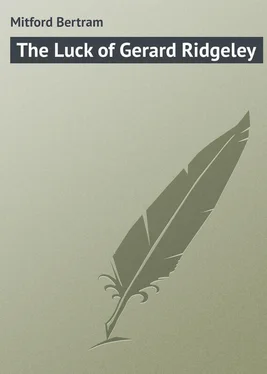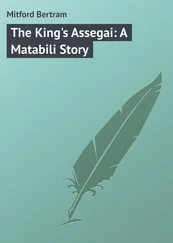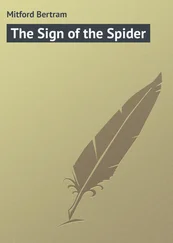Bertram Mitford - The Luck of Gerard Ridgeley
Здесь есть возможность читать онлайн «Bertram Mitford - The Luck of Gerard Ridgeley» — ознакомительный отрывок электронной книги совершенно бесплатно, а после прочтения отрывка купить полную версию. В некоторых случаях можно слушать аудио, скачать через торрент в формате fb2 и присутствует краткое содержание. Жанр: foreign_prose, на английском языке. Описание произведения, (предисловие) а так же отзывы посетителей доступны на портале библиотеки ЛибКат.
- Название:The Luck of Gerard Ridgeley
- Автор:
- Жанр:
- Год:неизвестен
- ISBN:нет данных
- Рейтинг книги:5 / 5. Голосов: 1
-
Избранное:Добавить в избранное
- Отзывы:
-
Ваша оценка:
- 100
- 1
- 2
- 3
- 4
- 5
The Luck of Gerard Ridgeley: краткое содержание, описание и аннотация
Предлагаем к чтению аннотацию, описание, краткое содержание или предисловие (зависит от того, что написал сам автор книги «The Luck of Gerard Ridgeley»). Если вы не нашли необходимую информацию о книге — напишите в комментариях, мы постараемся отыскать её.
The Luck of Gerard Ridgeley — читать онлайн ознакомительный отрывок
Ниже представлен текст книги, разбитый по страницам. Система сохранения места последней прочитанной страницы, позволяет с удобством читать онлайн бесплатно книгу «The Luck of Gerard Ridgeley», без необходимости каждый раз заново искать на чём Вы остановились. Поставьте закладку, и сможете в любой момент перейти на страницу, на которой закончили чтение.
Интервал:
Закладка:
Bertram Mitford
The Luck of Gerard Ridgeley
Chapter One.
Crossing the Durban Bar
The steamship Amatikulu was drawing near the end of her voyage.
A fresh breeze was ploughing up the blue waves of the Indian Ocean, hurling off their crests in white, foamy masses, casting showers of salt spray upon the wet decks of the vessel as she plunged her nose into each heaving, tossing billow, and leaped up again with a sudden jerk which was more than lively, and calculated to produce the most distressful of throes in the systems of her passengers. But these were well salted by this time, for, as we have just stated, they were at the end of their voyage.
This being so, it was pleasant work coasting along the Natal shore; pleasant to gaze on the green slopes and luxuriant tropical foliage, with here and there a planter’s bungalow peeping out from the tall canes; trebly pleasant, indeed, after a month of sea and sky-line, unvaried by any sight or diversion save such as the ocean could afford; for the Amatikulu was not in the mail service, but owned by a private firm, and, being advertised to “sail direct for Natal,” had touched nowhere save at Madeira, a week out from home.
“I reckon you two youngsters will be glad to stretch your legs ashore.”
The two thus unceremoniously addressed, who had been leaning over the taffrail intently watching the coastline, turned to the speaker, one with an air of would-be offended dignity, the other with a good-humoured laugh and a word of hearty assent.
Not less dissimilar in appearance than in their manner of receiving the above greeting were these two. Both of the same age, both bound on the same errand, it was easy to see that, come good or come ill, their lines would run upon altogether different roads. One, a well-made, broad-shouldered young fellow, whose sunburnt face and muscular hands spoke of abundance of cricket and rowing, and, in short, of every healthy outdoor sport within reach. The other, of slighter build, showed, in feature and dress alike, every symptom of the budding “masher,” the would-be man of the world. Thus Gerard Ridgeley and Harry Maitland respectively, as they gazed curiously at the shores of the new country, whither both had been consigned to seek their fortunes – in a word, to shift for themselves.
They were in no way related. They had become friends on board ship – up to a certain point, that is, for they had few ideas in common. Both were of the same age, however – just under nineteen, and the Amatikulu carried but few passengers. But she carried them at a considerably reduced rate.
“Of course, of course,” went on he who had accosted the pair, a bluff, jolly-looking individual with a short, grizzled beard. “That’s only natural and right. Young fellows who don’t look ahead ain’t worth their salt, in my humble opinion. And yet, if I know anything of life, I’ll bet a guinea the time’ll come when you’ll find yourselves wishing all you know you were back aboard this old barkie, with the cockroaches running over you all night, and nothing to do all day but play ‘bull,’ and look at the sea, or quarrel to kill time.”
“That’s cheerful, Mr Kingsland, at any rate,” said Gerard Ridgeley, laughing heartily at this terse summary of a sea voyage, no less than at the somewhat discouraging prediction which accompanied it. “But of course no one expects a bed of roses by way of a start in a new country. And now that it has come to the point, I feel in no hurry to leave the old barkie, cockroaches and all.”
“That’s right, my lad,” said his senior, looking at him approvingly. “We haven’t had such a bad time aboard the old ship after all. And she’s brought us over safe and sound. No – you’ll do; I can sea you’ll do, wherever you are.” And the speaker strolled away forward.
“Of all the bumptious old clodhoppers!” muttered Harry Maitland, scowling after the retreating form. “You seem to take things mighty cool, Ridgeley. Now, for my part, I can’t stand that fellow’s patronising way of talking to one. As if a chap was a schoolboy, don’t you know.”
“Bosh, Maitland!” said Gerard. “Old Kingsland’s not half a bad sort. He’s colonial, you know, and these colonial fellows are always blunt and outspoken – at least, so I’ve heard. He doesn’t mean any harm, and, if I were you, I’d knock off being so touchy about everything. I’m tolerably sure it won’t pay out here.”
“Hallo!” sneered Maitland. “You seem to be taking a leaf out of old Kingsland’s book. And it’s rather rich you setting up to lecture a fellow when you know about as much of this country as I do.”
“Well, we shall both know a little more about it directly,” was the good-humoured reply, “for in less than half an hour we shall be at anchor.”
The Amatikulu was now nearly abreast of the lofty brush-clad headland known as The Bluff, which extends its protecting arm between the port of Durban and the full force of the south-westerly gales. Signals were exchanged with the lighthouse, and, tumbling through the blue and lumpy seas, the steamer with slackened speed dropped cautiously into the roadstead. Then the rattling of the cable, as down went the anchor into half a score fathoms of water, and the voyage was at an end.
Not quite, however. There was still the “bar” to cross, before any could set foot on that beautiful land lying there spread out, an ocean of wooded hills, softly outlined in mellow distance against the cloudless blue. Dotted along the Berea, nestling amid tropical foliage, were scattered the villas of the well-to-do. Below lay the roofs of the busy town, a forest of masts rising above them from the land-locked harbour.
The Amatikulu drew too much water to attempt crossing this bar even in the smoothest of seas. From her decks the lines of roaring, boiling surf, the spume flying in misty clouds from each combing roller, were plainly visible. Visions of battening down, of a horrible half-hour spent in darkness beneath closed hatchways and crushing, thunderous seas, arose in the minds of her dismayed passengers. And their misgivings underwent no abatement as they watched the puffing little tug-boat, tossing like a cockle-shell upon the great rollers, or burying her hull out of sight beneath the surf. Out she came, however, right bravely, and soon sheered up alongside, to take off the passengers.
Then followed much leave-taking. Gerard, who had made friends with everybody on board, from the skipper and his mates to the sour-visaged old quarter-master, felt low-spirited enough as he took his seat in the great basket, through the agency of which, by threes and fours at a time, the passengers were swung off the Amatikulu and deposited with a thump on the streaming decks of the little tug-boat. Nothing delighted the grinning salts so much as to note the aspect of each human basketful as it tumbled out, scared and flurried, or mirthful and cheery, according to temperament, upon the heaving deck of its new and uncommonly lively resting-place, and the gleeful alacrity with which they hoisted up the empty basket for a load of fresh victims, spoke volumes for the genuineness of the pleasure too many people take in the misfortunes of their neighbours.
“I say, my hearties, I must trouble you to get below,” said the parchment-faced skipper of the tug, hailing our two young friends. The boat was rapidly nearing the worst part, plunging and rolling in the furiously increasing seas.
“I’d rather stay on deck,” expostulated Gerard.
“Dare say you would – and get washed overboard. Then what’d be said to me I’d like to know?”
“Is it as bad as that?” said Harry Maitland, in a scared tone.
Читать дальшеИнтервал:
Закладка:
Похожие книги на «The Luck of Gerard Ridgeley»
Представляем Вашему вниманию похожие книги на «The Luck of Gerard Ridgeley» списком для выбора. Мы отобрали схожую по названию и смыслу литературу в надежде предоставить читателям больше вариантов отыскать новые, интересные, ещё непрочитанные произведения.
Обсуждение, отзывы о книге «The Luck of Gerard Ridgeley» и просто собственные мнения читателей. Оставьте ваши комментарии, напишите, что Вы думаете о произведении, его смысле или главных героях. Укажите что конкретно понравилось, а что нет, и почему Вы так считаете.












